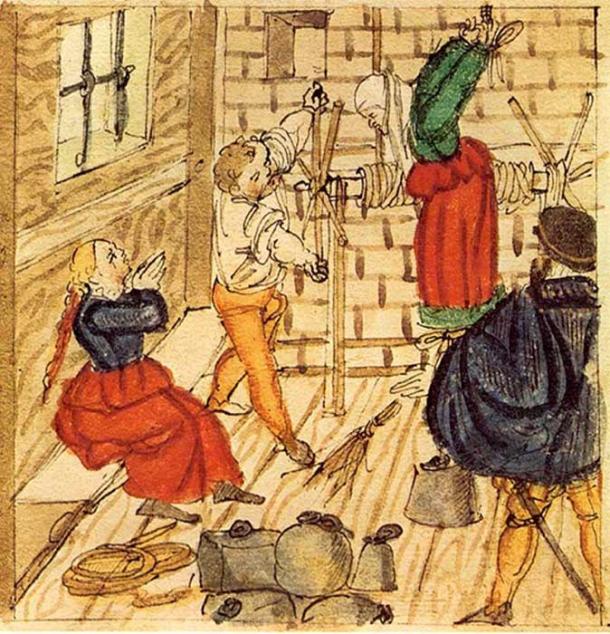
“Maybe it’s even that the camera has a freedom to move on him, while the camera, when it’s on Rose, it pushes in and stops, pushes in and stops, as if to say she’s really not in control of what’s happening,” Wegner says. Wegner also found that going handheld on Cumberbatch was quite powerful and unsettlingly intimate, giving the sense of Phil as an abstract terror in Rose’s mind. As he stands perched above in his bedroom doorway, looking down on Rose like a hawk on a rabbit, the camera is still quite tight on him, at a low angle, with deep shadows at work. This idea was taken a step further in how Wegner’s camera frames Cumberbatch in the scene. There’s no way to be secret or have any kind of privacy or secrets in this place.” In Rose’s mind, that’s kind of the feeling all the time, that maybe Phil is watching. Even though he can see her, but she can’t see him, which is a kind of reoccurring theme. It’s like a call-and-response, a sword fight, in a way. “What I love about this scene is it’s kind of a duel. “One of the things we were interested in is the idea that the threat of physical violence is scary when it’s obviously right in front of you, but psychological violence, there’s no escape, because it’s in your head. But while Wegner’s canvas was quite large when it came to transforming the landscape of New Zealand into the big-sky majesty of 1920s Montana, Phil and Rose’s potent duet called for a claustrophobic mise-en-scène that ultimately pivots the film into the psychological thriller space.
#Torment nexus meaning full
Finally, Rose gives it one last attempt, but Phil’s banjo dominates her utterly, ending on a forceful, hate-filled strum that leaves no room for doubt as to who is in control-and yet not a single word has been spoken in the entire three-minute sequence.Īri Wegner, the film’s director of photography, embedded herself with Campion a full year before production started, establishing the visual identity of the film with references ranging from realist mid-20th-century painter Andrew Wyeth to Evelyn Cameron, a photographer who documented pioneer life in the American West. She again tries to get through the song, and Phil’s plucking takes on a playful quality as he effortlessly moves through the notes and his own added flourishes, almost like a cat toying with its prey. His very presence is a reminder to Rose of all the dexterity that she lacks. Though a roughneck fully at home on the range, Phil is an educated man, knowledgeable in the arts and adept at his instrument. Reveal Phil, as his boot kicks his bedroom door open, his spurs announcing his ominous arrival for this demented duet. She starts again, and the banjo returns, more overtly this time. It’s only when Rose notices a door ajar that she realizes she’s not alone, and that’s when Phil’s sadism begins.Īs Rose clumsily finds her way through the song, the faint plucking of a banjo can be heard over the notes.

Then the camera slowly moves around her to reveal that Phil-who is quite unhappy with Rose’s overall presence in his life-has entered the home and is stealthily moving up the stairs to his bedroom, unseen. One afternoon, she closes all the doors in the house, ensuring a private moment to practice and pick her way through a jaunty tune.

But Rose is incredibly shy, unsure of her skill. Knowing his new wife, Rose (Kirsten Dunst), dabbles in playing piano, he has a Mason & Hamlin baby grand delivered for the night’s entertainment. George Burbank (Jesse Plemons), overseer of a vast cattle ranch with his brother Phil (Benedict Cumberbatch), aims to make a good impression on the visiting governor at a forthcoming dinner party. One sequence in particular stands out as an elegant distillation of this quality, a tense, taut, you might even say Hitchcockian musical exchange at the beginning of the film’s second act. From the unspoken inner turmoil of a Montana cowhand unable to openly live his true life, to the psychological anguish he cruelly inflicts on anyone he deems worthy of it, Jane Campion’s The Power of the Dog is a portrait of human torment in various shades.


 0 kommentar(er)
0 kommentar(er)
